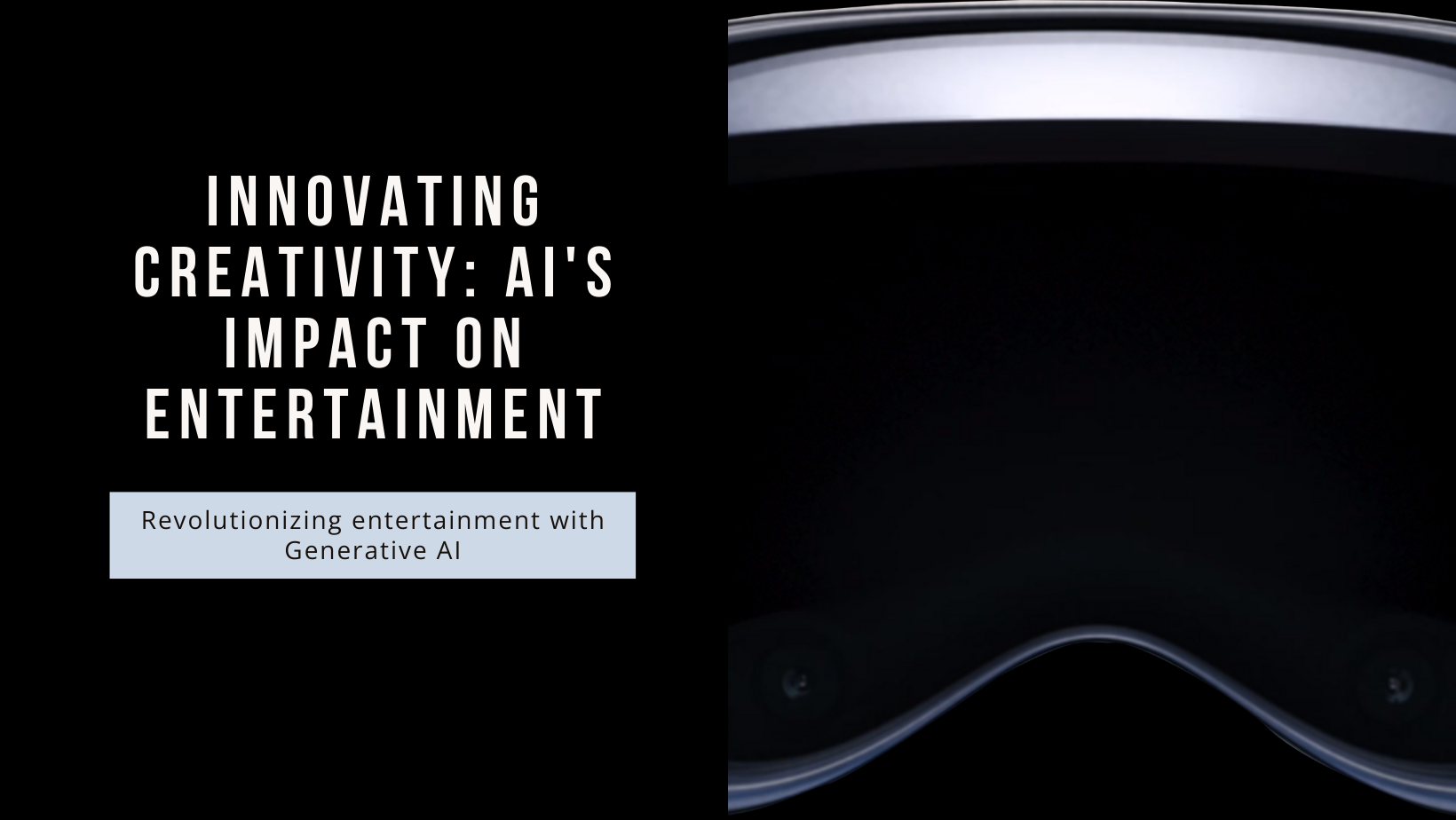In the digital age, the intersection of technology and creativity continues to redefine how we experience entertainment. Among the transformative technologies driving this evolution, Generative AI stands out as a powerful tool poised to revolutionize content creation, audience engagement, and immersive experiences across the entertainment landscape. This blog explores the promising future of Generative AI in entertainment, examining its current applications, future potentials, and the profound impact on industries like gaming, film, music, and virtual reality.
Understanding Generative AI in Entertainment
Generative AI, a subset of artificial intelligence, enables machines to autonomously generate new content, designs, and solutions based on learned patterns and data inputs. In entertainment, Generative AI empowers creators and developers to innovate by automating creative processes, enhancing interactive experiences, and personalizing content delivery to meet audience preferences and expectations.
Applications of Generative AI in Entertainment
1. Gaming and Interactive Media
Generative AI is reshaping the gaming industry by creating dynamic, responsive game environments, characters, and narratives that adapt to player actions in real-time. AI-powered procedural generation techniques generate endless variations of game levels, quests, and challenges, offering players unique and personalized gaming experiences.
2. Film and Content Creation
In film and digital content creation, Generative AI enhances storytelling capabilities through AI-driven scriptwriting, video editing, and special effects generation. AI algorithms analyze audience preferences and trends to predict content performance, optimize marketing strategies, and tailor promotional campaigns for maximum impact.
3. Music Composition and Sound Design
AI-powered music composition tools generate original compositions, remixes, and soundscapes based on genre preferences, emotional cues, and user feedback. From creating personalized playlists to enhancing live performances with AI-generated music, Generative AI enriches the music industry with innovative creativity and experimental sounds.
4. Virtual Reality (VR) and Augmented Reality (AR)
Generative AI advances immersive technologies like VR and AR by simulating realistic environments, 3D models, and interactive simulations. AI-driven image and video synthesis techniques create lifelike virtual worlds and enhance user immersion in virtual experiences, blurring the lines between reality and digital entertainment.
The Future Potential of Generative AI in Entertainment
1. Personalization and Audience Engagement
Generative AI enables hyper-personalized content recommendations, adaptive storytelling, and interactive narratives tailored to individual viewer preferences. AI algorithms analyze user behavior, demographic data, and contextual cues to deliver targeted entertainment experiences that captivate and retain audiences.
2. AI-Enhanced Creativity and Collaboration
Collaborative AI platforms facilitate cross-disciplinary creativity among artists, designers, and developers, enabling seamless integration of AI-generated content with human creativity. AI tools assist in prototyping, iterative design, and content iteration, accelerating production cycles and fostering innovation in entertainment projects.
3. Ethical and Regulatory Considerations
As Generative AI adoption expands in entertainment, addressing ethical concerns, data privacy, and content authenticity becomes crucial. Implementing AI ethics frameworks, transparency measures, and regulatory guidelines ensures responsible AI deployment, safeguards intellectual property rights, and protects user trust in AI-driven entertainment platforms.
Case Studies: Innovations in Generative AI Entertainment
Case Study 1: AI-Driven Game Design
Challenge: A game development studio aimed to enhance player engagement and retention through AI-driven procedural content generation.
Solution: Implementing Generative AI algorithms for dynamic level generation, character customization, and narrative branching in multiplayer games.
Outcome: The AI-powered game features achieved a 50% increase in player engagement metrics and a 40% reduction in content development costs, demonstrating the transformative impact of AI in game design and player experience.
Case Study 2: AI-Generated Music Streaming
Challenge: A music streaming platform sought to enrich user experiences with personalized music recommendations and AI-generated playlists.
Solution: Deploying AI-powered recommendation systems and music composition tools to curate personalized playlists and discover new artists based on user preferences and listening habits.
Outcome: The AI-driven music streaming service increased user retention by 35% and improved customer satisfaction ratings, showcasing the effectiveness of AI in enhancing music discovery and user engagement.
Future Outlook and Conclusion
Generative AI is poised to redefine entertainment paradigms, offering unprecedented opportunities for creativity, innovation, and audience engagement across diverse entertainment sectors. As technologies evolve and AI capabilities expand, embracing ethical AI practices, fostering collaboration, and embracing digital transformation will be crucial for unlocking the full potential of Generative AI in shaping the future of entertainment.
At Sodio Technologies, we are committed to driving innovation in Generative AI and empowering entertainment industry leaders with cutting-edge AI solutions. Contact us today to explore how Generative AI can transform your entertainment initiatives, enhance audience experiences, and propel your organization into the future of digital entertainment.







